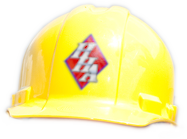source credit: Deposit Photos
Most people try to take great care of their vehicles. Between oil changes, repairs, simple maintenance, fluid checks, and part replacements, your vehicle gets a lot of love. Routine maintenance is an important part of making sure that your car works properly and it also helps you prevent more costly repair needs further on down the road.
Now think about how often you use your air conditioner. Don’t you think this important home comfort system deserves some love too? Spring is the perfect time to schedule a seasonal maintenance visit for your HVAC system. Showing your air conditioner a little love before the biggest cooling season of the year is the best way to ensure that it treats you well this summer.
It’s important to keep up with routine maintenance to keep your system running smoothly and efficiently so that it can help keep your family comfortable year-round. Here are a few reasons why spring is the perfect time to schedule an AC tune-up:
A tune-up can help increase your HVAC system’s efficiency.
When was the last time your HVAC system was cleaned and inspected? Your air conditioner tends to get dirty over time. The dirtier it gets, the harder it has to work to keep your home comfortable. This not only puts wear and tear on your HVAC system, but it can also impact your monthly electricity costs as your system needs more energy to keep your home cool. During your spring tune-up, an HVAC technician will clean your system to increase efficiency just in time for summer.
A spring tune-up will help prevent summer emergencies.
One of the greatest reasons to get a pre-summer air conditioner tune-up is for preventative maintenance. During your tune-up, your HVAC technician will clean and check your system for any repair needs. Repairing issues early on can help prevent more costly repair needs. For instance, your HVAC technician might find a small refrigerant leak during your tune-up. By fixing this issue right away, he or she is helping prevent your compressor from burning out, which costs significantly more to fix. By getting a tune-up in the spring, you are helping prevent emergency issues and avoiding an AC breakdown during one of the hottest seasons of the year.
Most HVAC companies provide flexible scheduling in the spring.
Summer is one of the busiest times for HVAC companies because they are often called to fix emergency AC repairs. This can make it difficult to squeeze in an air conditioner tune-up once summer hits. However, many HVAC contractors are a bit less busy in spring, which means that they will often have a more open calendar that allows for flexible scheduling. This makes spring the perfect time to schedule a tune-up appointment that is convenient for your own schedule.
So what are you waiting for? The sooner you get a spring HVAC tune-up, the sooner you can rest easy knowing that your home comfort system is ready to keep you comfortable during the warmest times of the year. Call us today to schedule your spring air conditioner tune-up.
Our Spring Air Conditioning Tune-Up includes:
Chemically clean & thoroughly wash condenser coils.
Inspect standard air-filters.
Wash & check condensing unit for proper motor & bearing wear.
Lubricate motor & fan bearings & other moving parts as necessary.
Clean & inspect evaporator coil and drain pan when readily accessible.
Clean & inspect condensate drain lines & fittings.
Clean, level, & calibrate thermostat.
Inspect blower motor & fan assembly.
Inspect, tighten, & test all electrical connections, including disconnect switch.
Inspect all cooling system electrical wires, connectors & terminals.
Test system starting & running capacitors.
Test all controls, switches, relays, transformers, contacts, motors, & fans.
Measure starting & running amperes, line voltage, and control voltage.
Test system-starting capabilities.
Test system for proper airflow & air delivery.
Inspect & adjust all safety controls.
Monitor refrigerant (Freon) pressures & temperatures.
Test & record super-heat & sub-cooling. Compare with factory specifications.
Adjust Freon metering control device to factory/manufacturer's recommendations.
Test air-conditioning system for proper production & capacity.
Present a full written report.
source credit: https://bit.ly/3kkhqpT


